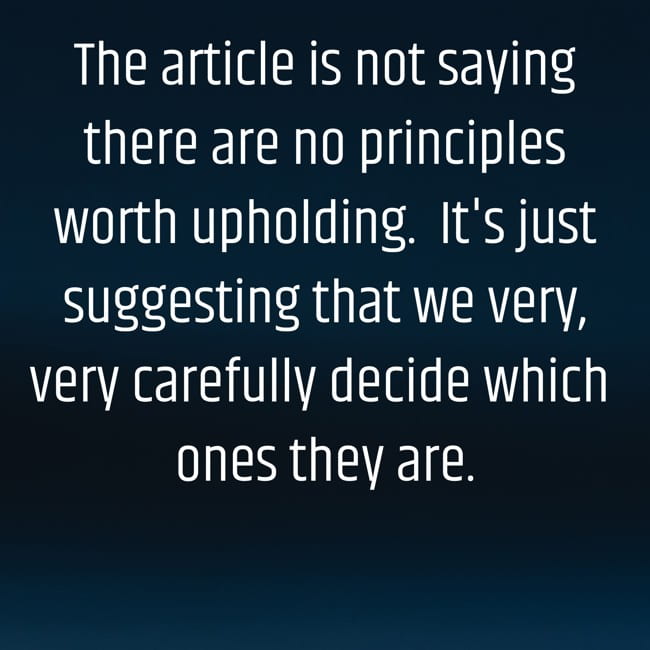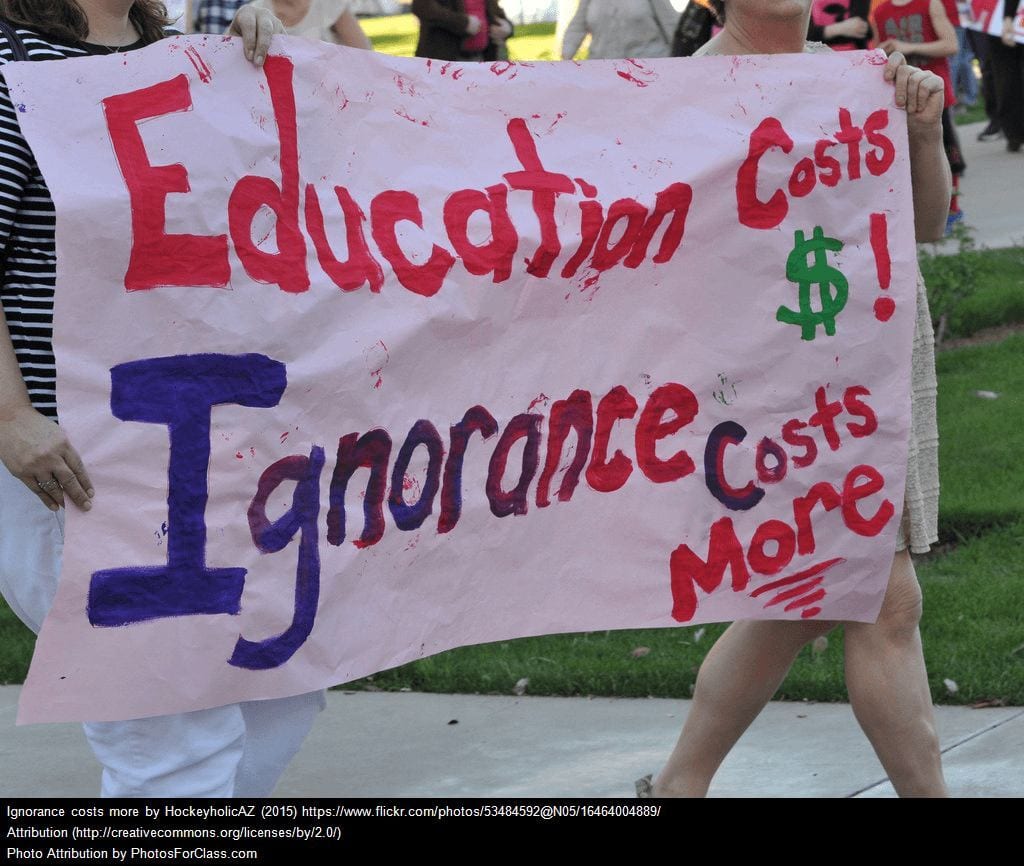I’m republishing about fifteen-or-twenty columns/articles I wrote for various publications like ASCD and The Washington Post over twelve years ago, but which are no longer available on their websites. I still think they have some relevance today. I’ll add links to these posts to the page where links to all my articles are located.
This 2010 column appeared in The Washington Post and was highlighted in The Atlantic.
Community organizers and leaders in the Industrial Areas Foundation (where I spent most of my nineteen year organizing career) are given a 1933 article by John H. Randall, Jr. It’s titled “On The Importance Of Being Unprincipled.”
Granted, it’s a bit of a strange title. Its premise is that we need to be very careful what beliefs we turn into principles, because once they become a principle, we can’t really compromise on it. And that many people turn far too many ideas into principles that they are unwilling to reconsider. Subsequently, negotiation becomes out of the question, and unnecessary conflict often ensues. We can see it in our families, our schools, our country, and in our world.
The article is not saying there are no principles worth upholding. It’s just suggesting that we very, very carefully decide which ones they are.
I was reminded of this article in a piece titled Strong Opinions, Weakly Held by Bob Sutton. He writes:
“…I was talking to the Institute’s [For The Future] Bob Johansen about wisdom, and he explained that – to deal with an uncertain future and still move forward – they advise people to have “strong opinions, which are weakly held.” …. Bob explained that weak opinions are problematic because people aren’t inspired to develop the best arguments possible for them, or to put forth the energy required to test them. Bob explained that it was just as important, however, to not be too attached to what you believe because, otherwise, it undermines your ability to “see” and “hear” evidence that clashes with your opinions. This is what psychologists sometimes call the problem of “confirmation bias.””
Perhaps we all could use a little of being “unprincipled” and of “weakly holding some strong opinions.”
It’s a hard thing to remember in the classroom when it can be tempting to get into “power struggles” with a student (even though a teacher can never ultimately “win” one of them). It’s also a hard thing to remember when debating “school reform” strategies.
I know that in both situations I am often unsuccessful in practicing this advice.
But I’m trying.
That is much more than I can say about the legion of “school reformers” who over the past months — the “Waiting for ‘Superman’ movie ; the Los Angeles Times publishing of teacher’s “effectiveness” ratings; and the recent appalling “manifesto” written by a number of school superintendents in the Washington Post — have reached a crescendo of teacher-bashing.
And if the word “unprincipled” makes you uncomfortable, there is always Mark Twain’s admonition:
“It ain’t what you don’t know that gets you into trouble. It’s what you know for sure that just ain’t so.”
I’m republishing about fifteen-or-twenty columns/articles I wrote for various publications like ASCD and The Washington Post over twelve years ago, but which are no longer available on their websites. I still think they have some relevance today. I’ll add links to these posts to the page where links to all my articles are located. school reform Larry Ferlazzo’s Websites of the Day…









